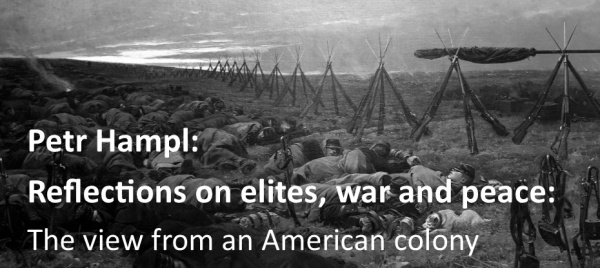Is it possible for national patriotic revolts against the globalist elite to be successful? And if so, what is the right strategy? This is a topic that occupies some of the best independent minds of our time. We have seen a number of promising attempts. Some have ended in defeat (Trump, Strache), others are uncertain (Salvini), others have gradually changed their position (Johnson). There is growing tension in societies, but it does not increase the chances of victory. There are even signs that the new aristocracy (the new upper class) is strengthening its grip on power.
I address this in my books, where I argue that the self-destructive activities of the new aristocracy must continue for several more years before the elites damage themselves enough to make change possible. And I also argue that the question is who will then be best prepared. So far, it looks like the Muslim community will be best prepared for the takeover.
…the self-destructive activities of the new aristocracy must continue for several more years before the elites damage themselves enough to make change possible.
Those who want to prepare for a time of change should look to history. They should look to them for successful models and principles. Americans may recall the War of Independence, when the settlers of that time succeeded against the global British Empire. But I will recall a stage less well known in Anglo-Saxon countries – the Bohemian Hussites.
The Hussite revolutionary movement was the first time in the history of Christian civilization that peasants were able to repeatedly defeat the best military units of their time. It is not that they achieved one surprising victory – history knows such cases. But the Czech peasants won a whole series of wars against the best military professionals of their time! Of course, we cannot recreate the 15th century, nor would we want to return to the horrific level of violence and brutality (practiced by all sides) of that time. But we can show a principle that perhaps applies more generally. For the Hussites were dealing with an assignment very similar to today’s patriotic populist movements.
The Hussite revolutionary movement was the first time in the history of Christian civilization that peasants were able to repeatedly defeat the best military units of their time.
What it was about. In 1415 Jan Hus, the most popular Czech preacher and the country’s greatest moral authority, was burned at the stake in Constance. What followed was a wave of riots that was primarily directed against the Catholic Church, but had a social dimension from the start. The riots involved the poor and were largely driven by their energy and their discontent. However, the Hussite revolution was gradually joined by the upper classes until it gained a majority in the country.
Five crusades and a number of smaller campaigns were successively launched against the Bohemian heretics. The campaigns were attended by the best warrior professionals that Europe could muster at the time. These were armies of approximately 30,000 men, which was many times more than the number of men the Hussites could muster. Yet all the expeditions ended in crushing defeat. In the end, the Catholic Empire had to make peace with the heretics – including accepting universal freedom of speech as a fundamental right. The Czech lands became the freest part of Europe for 200 years. Inquisition and burning were absolutely out of the question.



